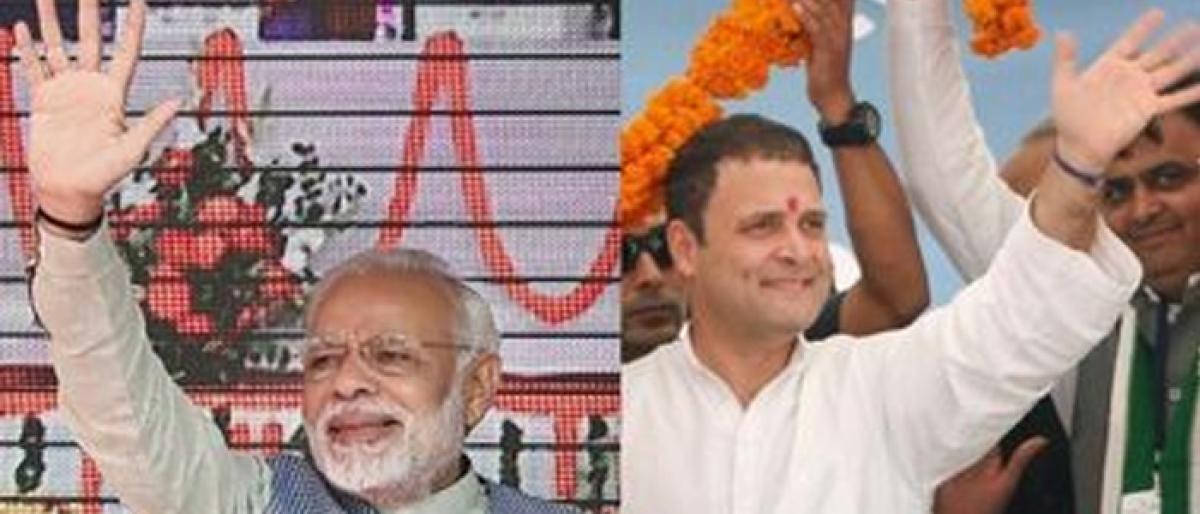Live
- NASA Tracks Five Giant Asteroids on Close Approach to Earth Today
- Pushpa 2 Hits ₹1000 Crore in 6 Days: How It Compares to Other Top Indian Films
- Vivo X200 and X200 Pro Launched in India: Price, Specifications, and Features
- Nitin Gadkari Admits Feeling Embarrassed at Global Summits Over Rising Road Accidents in India
- Comprehensive Review on Indiramma Housing Survey and Welfare Initiatives Conducted via Video Conference
- Jogulamba Temple Records Rs 1.06 Crore Hundi Revenue in 150 Days
- Opposition Slams ‘One Nation, One Election’ Bill as Anti-Democratic; BJP Allies Support the Move
- Celebrate Karthigai Maha Deepam Virtually with Sri Mandir’s LIVE Darshan Experience
- BJP Extends Support to Samagra Shiksha Abhiyan Employees' Strike, Demands Immediate Regularization and Welfare Benefits
- Dr. M. Priyanka Stresses Quality Education, Nutritious Meals, and Cleanliness in Schools
Just In

A number of criminals or, let’s say, potential criminals may get entry to the Karnataka Assembly to represent over 6 crore Kannadigas, many with the labels of national political parties including the ruling Bharatiya Janata Party (BJP).
A number of criminals or, let’s say, potential criminals may get entry to the Karnataka Assembly to represent over 6 crore Kannadigas, many with the labels of national political parties including the ruling Bharatiya Janata Party (BJP).
Beyond the Narendra Modi Vs Siddaramaiah verbal spectacle in the run-up to the Karnataka state polls, it is worth taking a look at the personal profiles of the contesting netas to get a clearer picture of the unfolding political landscape in the state which for sure isn’t a state-specific phenomenon…contesting the 225 seats are 2,655 candidates.
The Association of Democratic Reforms (ADR) has analysed the affidavits of 2,560 candidates filed with the Election Commission (rest are incomplete or not available). Of this, a good number, 391, including those from the two major national political parties – BJP and the Congress party – are facing criminal charges.
Looking closer at the details, of the 391 candidates, 254 are facing serious criminal charges. The Hindu report, quoting Trilochan Sastry of the ADR, said BJP has fielded 83 candidates facing criminal charges in the southern state while the Congress has 59 such candidates. Janata Dal (Secular) has 41 of them. Now, the logical question is: Why are both the parties, BJP and the Congress, which have been preaching cleaning-up of the political system as a priority in their to-do list, so fond of fielding potential criminals to represent over 6 crore Kannadigas in the Assembly?
It is interesting to note the recommendation of ADR in its 18 April report on Karnataka polls raising a big question mark on the logic behind major political parties continuing to give poll tickets to criminals. It’s not just the element of criminality in the candidate profile that is worth noticing. One needs to see this data in conjunction with the asset details of candidates. To be sure, rich criminals contesting elections isn’t confined to the state of Karnataka but elsewhere as well. There is enough empirical evidence for that.
Now, see this trend with the persisting opaqueness in political funding. As this writer pointed out in an earlier column, on an average 75-80 percent of the total political funding continues to come from "anonymous sources." In other words, the promise to bring transparency has remained a promise so far. This certainly doesn’t augur well for India and for the BJP in particular, since transparency in political funding was one of the key promises from the party. When looking at the conduct and asset profiles of candidates, one must keep in mind the trend in the inflow of income of certain political parties, especially in the last few years.
According to a recent report from election watchdog ADR, the ruling party has seen its income rising from Rs 570.86 crore during FY 2015-16 to Rs 1,034.27 crore in FY 2016-17, while the income of the Congress party decreased by 14 percent (Rs 36.20 crore) from Rs 261.56 crore during FY 2015-16 to Rs 225.36 crore in FY 2016-17.
Since it came to power in 2014, BJP’s moneybag has expanded by about 53 percent — from Rs 673.81 crore in 2013-2014 to Rs 1034.27 crore in 2016-2017. The Congress party, during the period, has actually seen its income declining by 62 percent—from Rs 598.06 crore to Rs 225.36 crore.
In Karnataka, the average assets of candidates in the Congress party’s first list is Rs 28 crore while that of the BJP is Rs 8 crore and JD(S) Rs 14 crore, meaning most of them have come to the battle scene with money power. The Karnataka candidate profile is an indicator to the larger malaise in the political system.
Assuming an overlap (which is very likely) between the sets of candidates facing serious criminal charges with that of wealthy contestants, what we have here is a group of rich, potential criminals with political power posing a fundamental threat to the democracy. Unfortunately, a good number of them are backed by leading national level political parties. Both Narendra Modi and Rahul Gandhi--star campaigners of their respective political parties-- have remained silent all along about the inclusion of criminal accused in their candidate list.
As the ADR recommends, it is time for political parties to take a stand and refrain from giving tickets to candidates with a criminal background, misuse of money power that in all probability will lead to bribing of voters and distribution of freebies. Further, political parties should move towards transparency and disclose the criteria for selection of candidates during elections. Else, the glaring disconnect between their promises and action on the ground stand exposed.
By: Dinesh Unnikrishnan

© 2024 Hyderabad Media House Limited/The Hans India. All rights reserved. Powered by hocalwire.com







